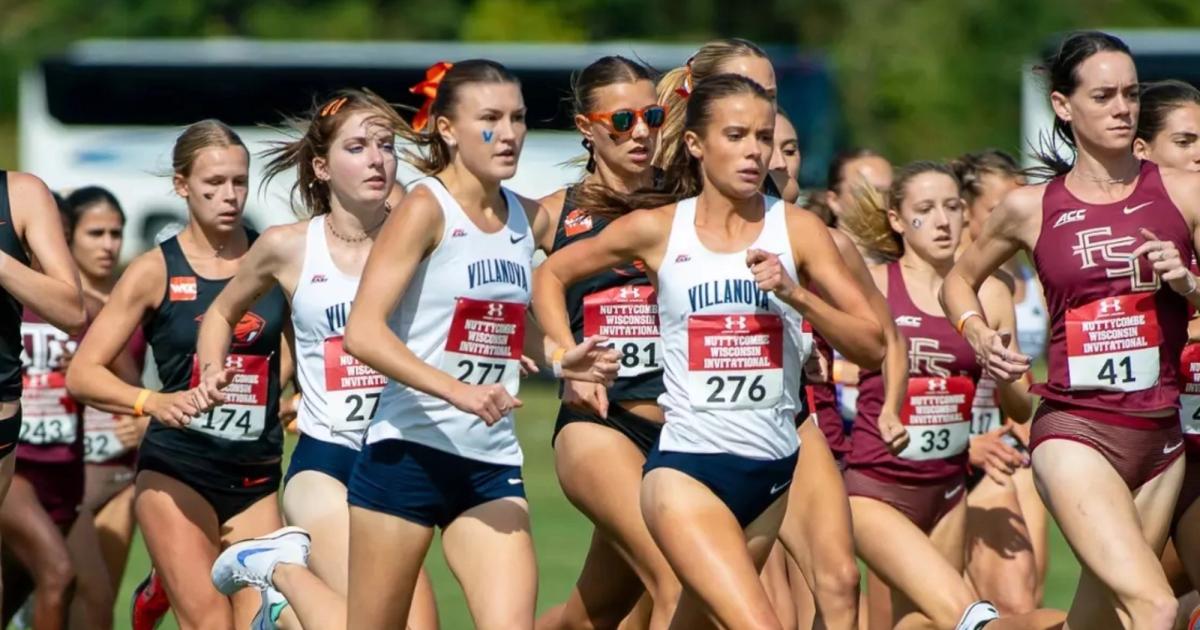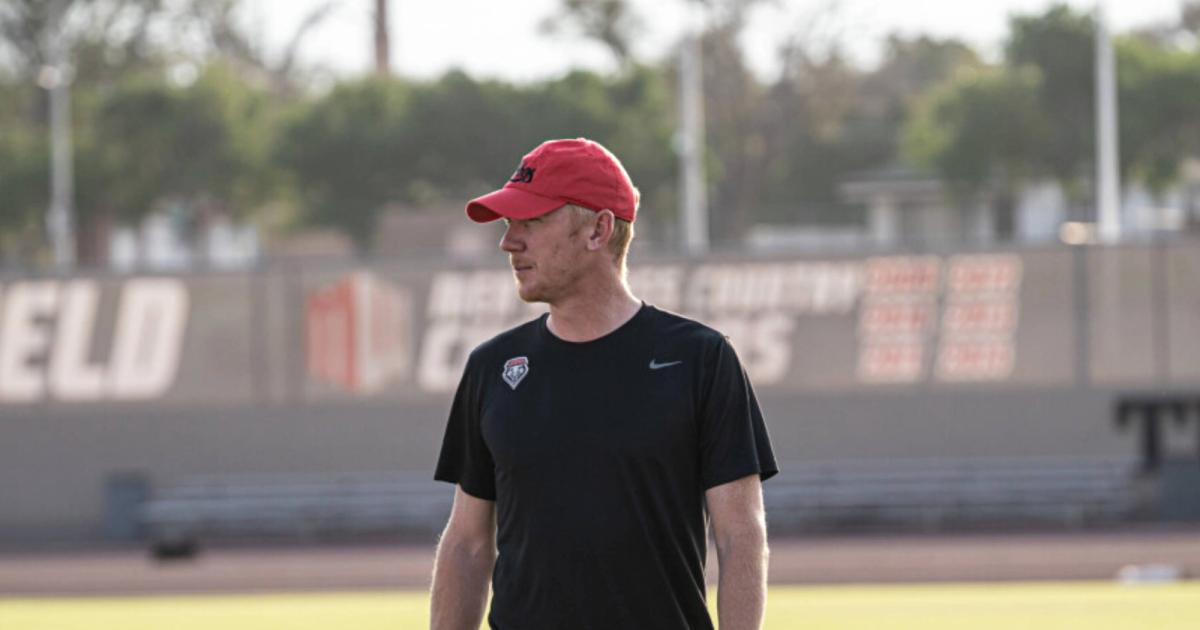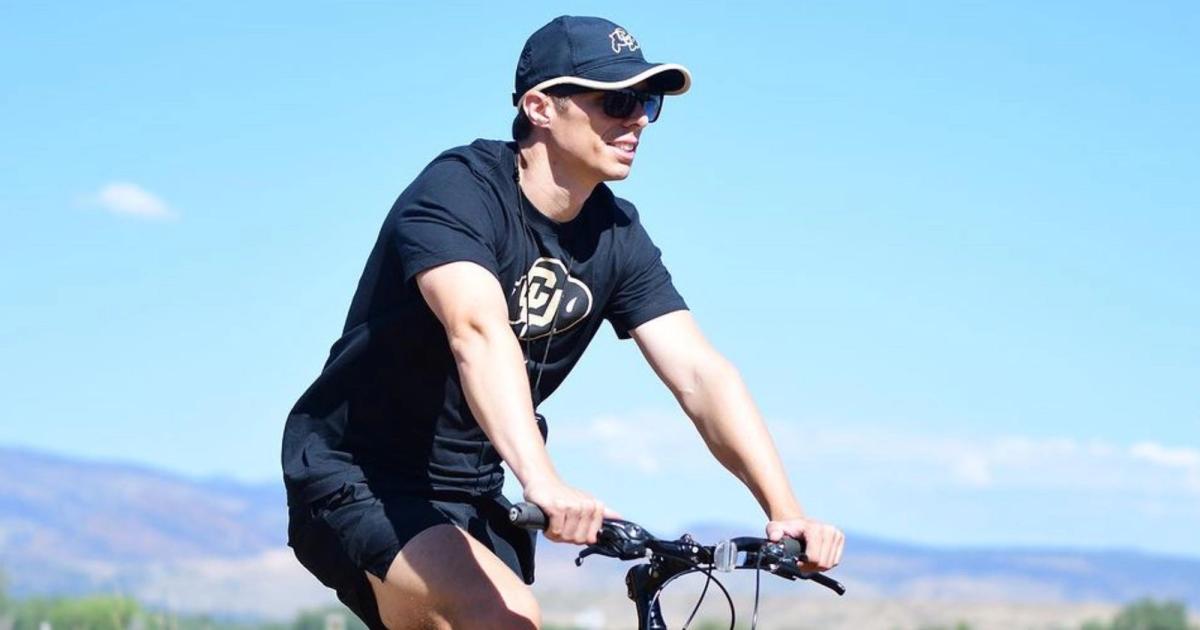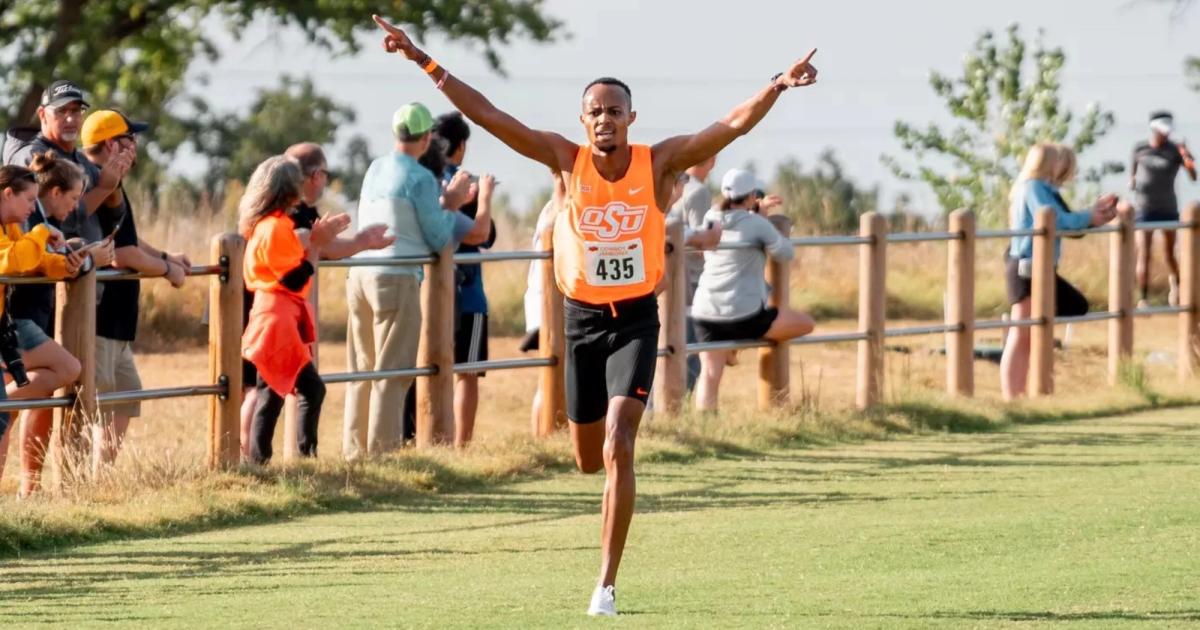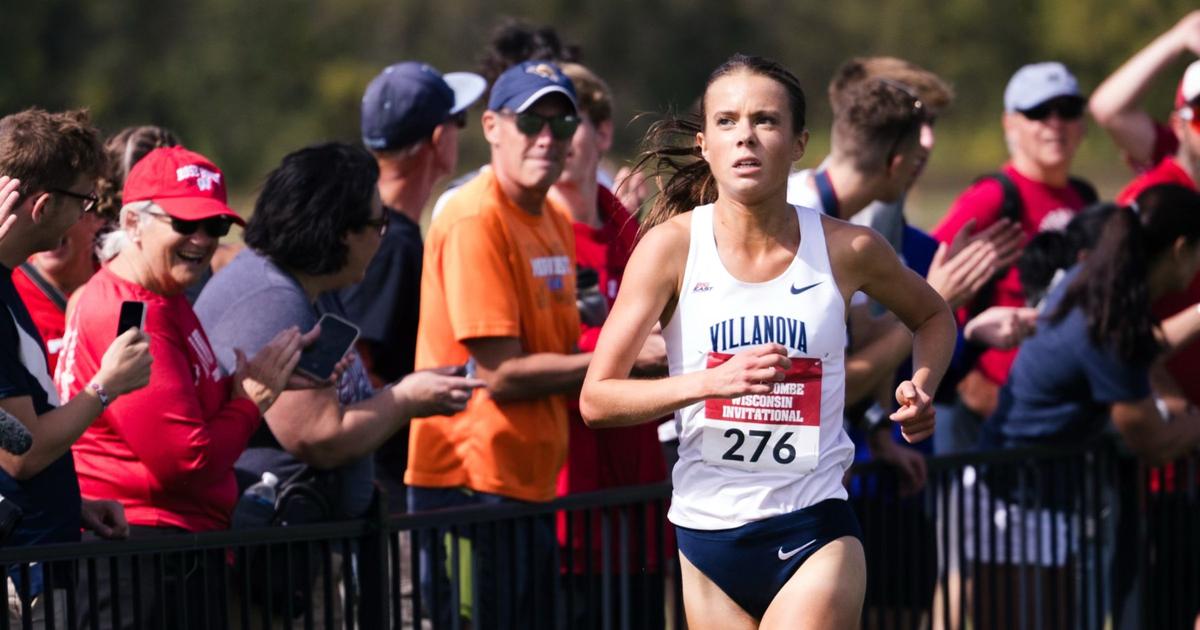By Jasmine Fehr
October 8, 2024
"We look for tough competitors that just love to compete. That's the biggest thing. "
For this week’s NCAA coach spotlight, Jasmine Fehr chatted with Gina Procaccio to hear about Sadie Sigfstead’s rise in the NCAA and Procaccio’s growing legacy with the Villanova Wildcats.
Procaccio is in her 22nd year of coaching the women's cross country and track programs at Villanova, where she's led the team to two cross country national titles, nine individuals to national titles, and has coached 126 All-Americans.
In our conversation, Proccacio reflects on her historic career at Villanova, unpacks her coaching and training philosophy, shares her thoughts on the changing landscape of the NCAA, and highlights what makes this year’s team special as we look towards the postseason.
The following interview with Gina Procaccio has been edited lightly for length and clarity.
Jasmine Fehr: Welcome to CITIUS MAG! To kick things off, can you share with us what coaching at Villanova means to you and what your experience has been like at the university? You also competed for Villanova during your own college days.
Gina Procaccio: I only ran for Villanova one year, but it was a great year and I had a lot of success, so I loved it. To put that singlet on meant something… Especially the history, I was just happy to be part of it. So when I had an opportunity to coach at my alma mater, it was a no-brainer.
Sadie Sigfstead won the women’s race at Nuttycombe. Over the past year, she's really taken off as a top NCAA athlete to watch for. Can you share about her improvement and what factors led to this breakout season?
I usually see a big jump during junior year with my athletes. During Sadie’s sophomore year, she couldn't run. It turns out it wasn't really any specific injury; her biomechanics were just so bad that all the force was going to her hips and knees. She had really bad hip pain. We took her to our massage therapist/exercise physiologist and she said that Sadie had to basically rebuild and change her running form or she was just going to constantly have this pain.
Sadie is so tough… The physiologist looked at her and said, ‘I can tell the force is going to your hips and knees.’ And Sadie said, ‘My knees always hurt. I just figured that's the way it was.’
We had to take the fall of her sophomore year to just not run, which was hard to get her to do. Once the inflammation came down, she had to start out doing these micro-strengthening exercises that were very tedious… where you're not going to see the results right away. As runners, we're all kind of impatient. We want instant results. But she put in the work and it changed her form. She hasn’t had any issues since and this is her senior year.
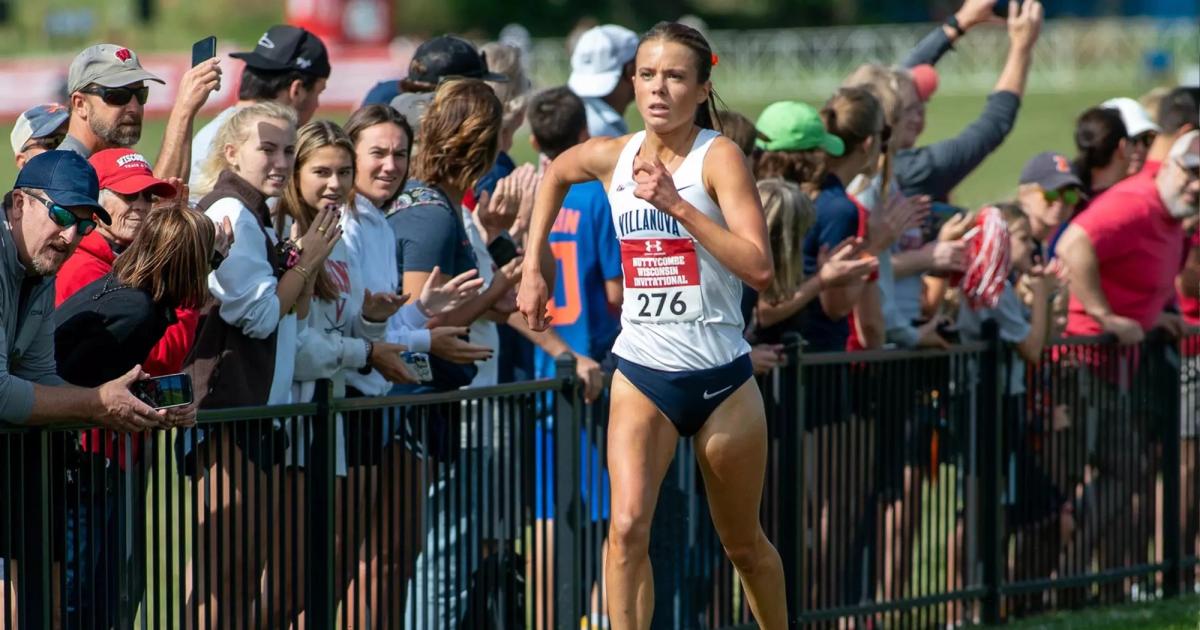
Courtesy of Villanova Athletics
Something you mentioned is that you don't always see big improvements until junior year. Is that a testament to taking more of a long-term developmental approach?
I think a lot of the kids we get at Villanova are developmental-type kids. It just takes a couple of years to get stronger and get that confidence. I see kids improve every year and get better – but usually, I'll see that breakout, superstar year happen by their third year.
Can you share about your coaching philosophy and how it's changed over your time spent coaching in the NCAA?
My predecessor told me when I took over, ‘Just keep them happy and healthy and you'll do well.’ So that's my philosophy. In terms of my ideals and what I believe: I'm not a super high mileage coach. I'm also a lot more one-on-one. If an athlete is going to benefit from more mileage, then of course that's the route we're going to go. But I believe in speed and turnover. I keep it in our training year-round and I believe in hitting all paces… We're not doing 400m pace in the fall, but we will do some short, quick hills to get turnover in.
"My predecessor told me when I took over, ‘Just keep them happy and healthy and you'll do well.’ So that's my philosophy."
For this cross country season in particular, is there anything that stands out about this team compared to previous years? What are you looking forward to most as you and the team take on the rest of the season?
We're pretty excited this year. It's always good to have a low stick. In addition to Sadie, we have Nikki Vanasse, who is a fifth-year from Columbia and she had a great race [at Nuttycombe] as well. It was a big breakthrough for her.
Then we have another girl, Emma McGill, who was fourth in the Mid-Atlantic Region last year and has not opened up yet. We're really excited to get her back into the mix, which should be in a couple of weeks.
I think we have some pretty good depth behind those three, so we should be able to have a respectable fourth and fifth. Moving forward, we're just going to be a team that keeps getting better week in and week out. And we need to because our conference is incredibly competitive, which I love. There was a time when the Big East was super competitive and I think we're getting to that point again… and then our region is really competitive too.
I think that's what makes a great team: you need to be challenged. You need to be battle-tested every week.
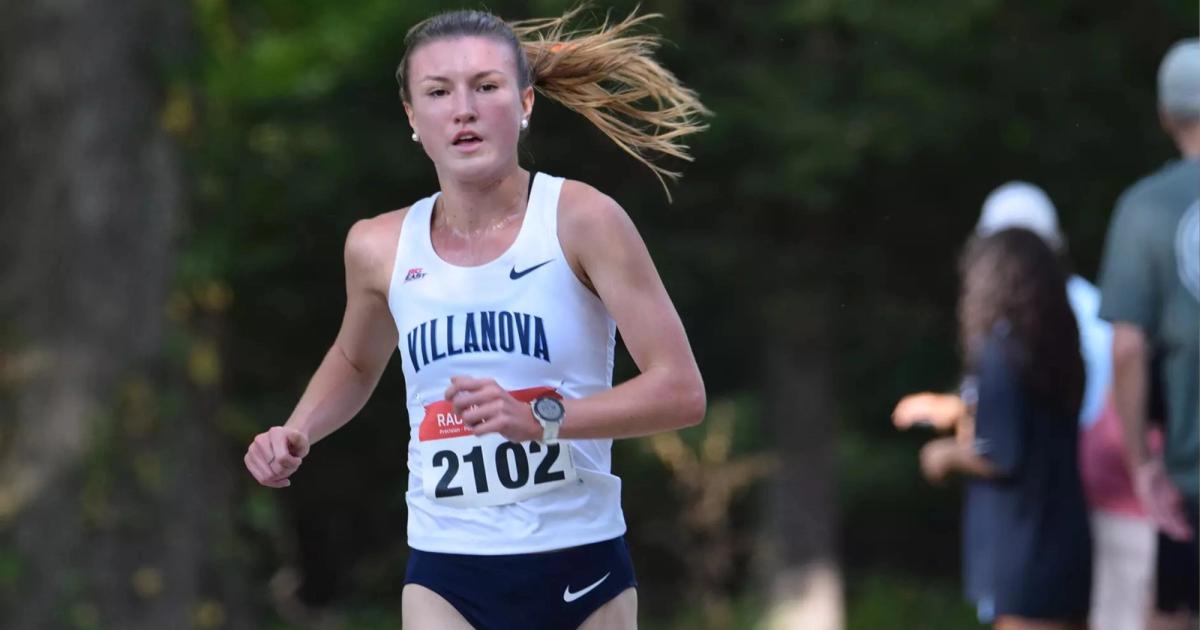
Courtesy of Villanova Athletics
That's the thing too. Being in a strong conference and region makes it harder to qualify for nationals, but it forces everyone to rise to the occasion and race a little better.
Right. It brings out the best. I think about when we won [the NCAA Cross Country Championships] in 2010: Georgetown was fourth. They were right there. Every time we raced, they kept us on our toes. That's when you have great teams.
Looking back at your career, do you have a favorite memory that stands out that you’d like to share?
When you take over a program that's won seven national championships – which is what I did, I don't recommend – there's nowhere to go but down. But I was determined to win a national championship. That's the history of the program.
I was the first woman head coach, so I definitely didn't want to be the person that stopped that streak. Obviously, there were many rebuilding years and just getting the right kids. In 2009, I think we had that team. One of the workouts we did going into that was a six mile progression run. They were supposed to start out the first three at around 6:00 pace – they were a little under – and then just bring it down the next three miles. I remember the last mile was 5:00 for my top athlete in college.
The second last mile was 5:10 and then 5:13… It was amazing. Sheila Reid went on to win back-to-back NCAA titles and we ended up winning as a team that year.
That day, I remember calling my assistant because she wasn't there. I said, ‘We're like, really good. You're not going to believe what they just did.’ I haven't had an athlete do something like that again until about two weeks ago.
"I said, ‘We're like, really good. You're not going to believe what they just did.’ I haven't had an athlete do something like that again until about two weeks ago."
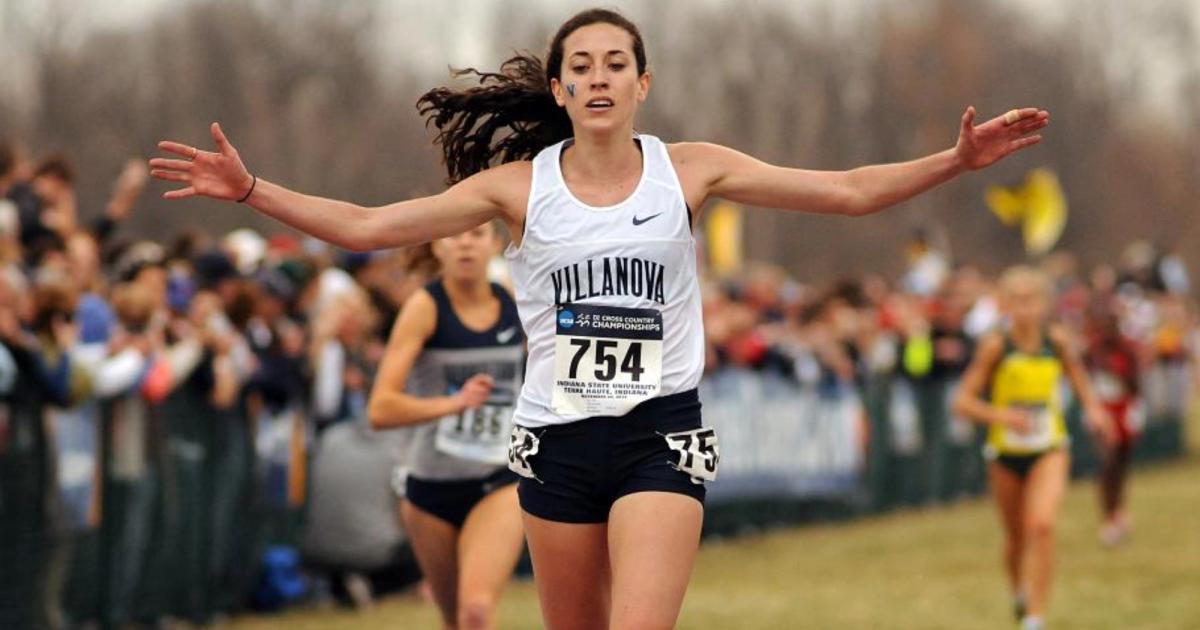
Courtesy of Villanova Athletics
Shifting gears a bit: there have been a lot of recent changes in the NCAA. We're seeing more international and older athletes join the college system as well as adjustments to NIL, scholarships, and roster limits. What is your perspective on this and how have you navigated these changes?
For someone who's been around this long, the NCAA has definitely changed. One of my favorite things is to see our athletes go on and make world championship and Olympic teams. What better way to challenge them than having international kids in the NCAA? I think it makes us all better.
It’s funny to see how much it's changed even from when I was in school. I think we had 16 teams qualify back then… Now it's double that. When I first came on in the 90s as an assistant… you could maybe count on one athlete [finishing a race] per second and now you're talking 10 or 20 athletes per second. It's crazy.
It's different, but then you go watch the Olympic Games and you see all of these NCAA athletes in there. So what a great system to be able to go through – for all the countries.
In creating a strong team culture and cohesive group, what factors do you value most?
I think everybody needs to respect everybody. I tell them, ‘You don't all have to love each other, but you do have to respect each other and support each other.’
The Villanova way is humble and hungry. We look for down-to-earth kids who want to get a good education and are tough competitors.
"I think everybody needs to respect everybody. I tell them, ‘You don't all have to love each other, but you do have to respect each other and support each other.’"
Is there a certain type of athlete that you recruit? What characteristics do you look for in that process?
We look for tough competitors that just love to compete. That's the biggest thing.
I mean, maybe lower mileage kids are more attractive to us because I'm not super high mileage… but that doesn't mean if a high mileage kid is interested I'm going to shy away.
But I think toughness is the biggest thing. I look for tough competitors.
To close things out, what are you looking forward to most this season and how do you hope to keep growing Villanova’s program?
I'm really excited to get the team to nationals. Like I said, our region is tough. Our conference is tough… But I like that. I like that we're going to be battle-tested every meet we're in. I'm excited to see how good we can be.
I think we had a solid opener at Nuttycombe, but there's still so much work to do to get us where we need to be. I'm excited to see where we can go and the kids are all excited to have a good team. So it's just fun.
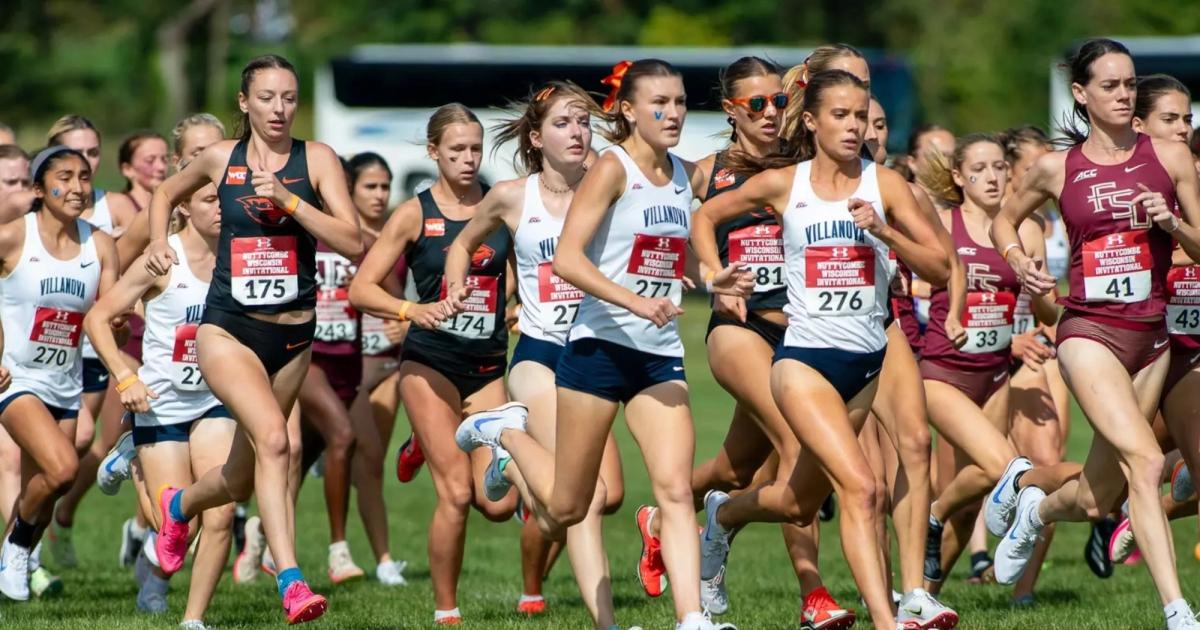
Courtesy of Villanova Athletics
And you mentioned that you held out one of the women from Nuttycombe, so you have another athlete to add in.
Yeah, we're excited to get her in there and see what we can do. It would've been great to have her, but she just wasn't quite ready and Nuttycombe was three weeks earlier this year. We made the decision to go to the earlier meet because there's a big meet at Princeton in three weeks with a lot of the teams we faced already. It’ll be good to see how we stack up against them when we put her back in.
The next test!
It’s a test, but that’s who we are. It's always a fight. It's never easy. But in the end, it'll be great.
Well, good luck to everyone this season and thank you so much for joining us. We'll be following along with the results!
___________________
Keep up with all things track and field by following us across Instagram, X, and YouTube. Catch the latest episodes of the CITIUS MAG Podcast on Spotify and Apple Podcasts. For more, subscribe to The Lap Count and CITIUS MAG Newsletter for the top running news delivered straight to your inbox.
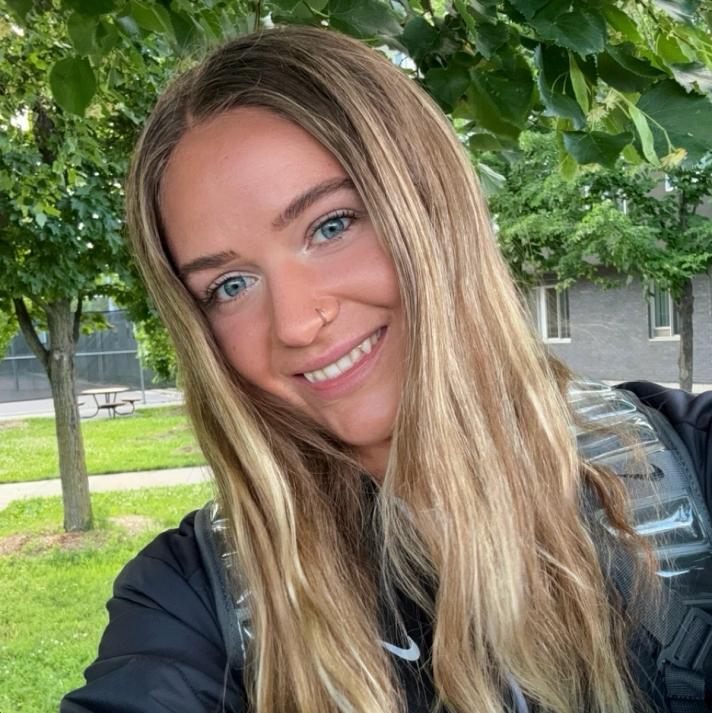
Jasmine Fehr
Jasmine Fehr produces the CITIUS MAG Podcast, manages our website, and shares content across our socials. She’s a marathon runner training in Flagstaff, Arizona. Her collegiate running career spanned the University of Portland and the University of Tennessee, where she earned a Bachelor’s degree in Psychology and Master’s degree in Communications.
